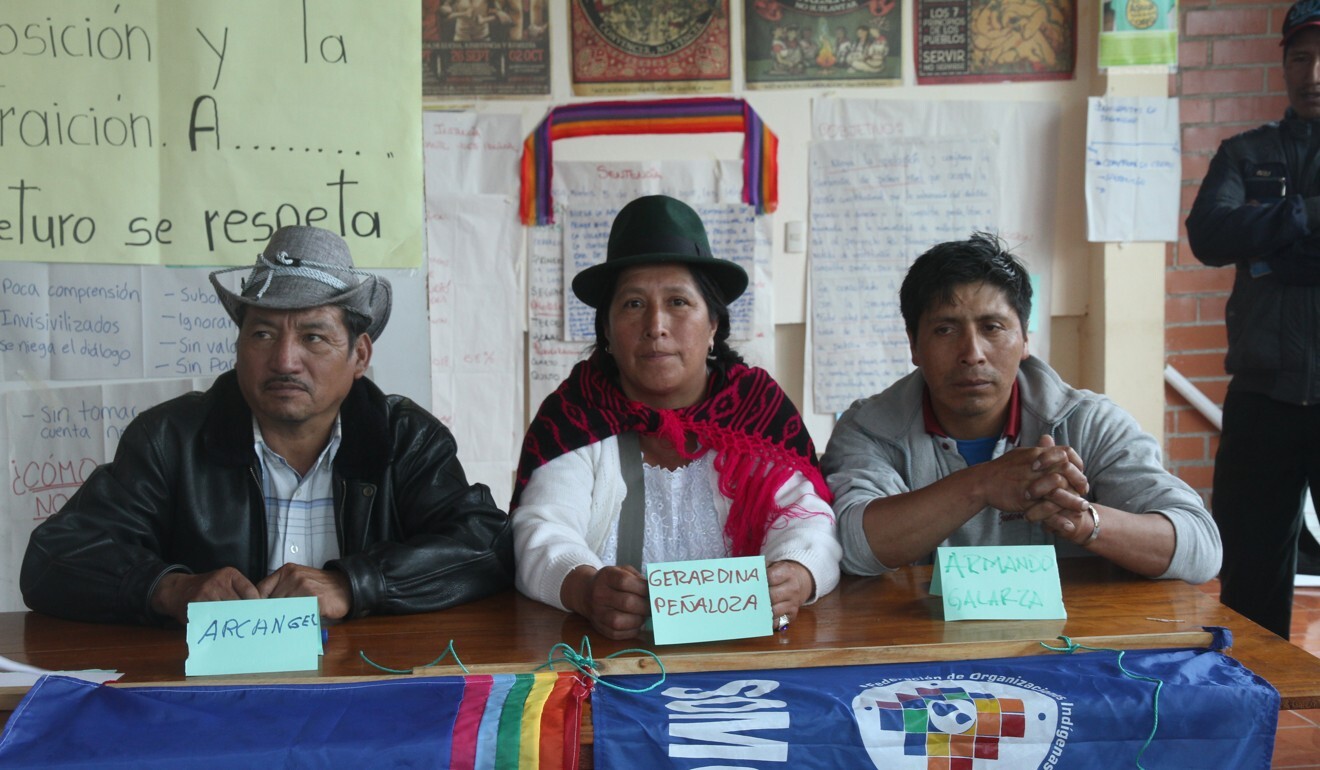
Can China win over the locals in Latin America?
- Chinese companies must invest responsibly or resentment of Beijing will grow, experts warn
- Cultural sensitivity and engaging with communities and grassroots organisations are key
Peasant-turned-activist Elizabeth Durazno claims that a Chinese-backed mine near her village in Rio Blanco, southern Ecuador, has brought only environmental destruction.
Yet Durazno does not think that aid or investment from China would be a good solution.
While Beijing’s foothold in Latin America may increase as the continent heads for a deep economic crisis sparked by Covid-19, researchers urge Chinese companies to avoid previous mistakes, or else local resentment will grow.
Ruben Gonzalez-Vicente, lecturer in global political economy at the Leiden University in the Netherlands, says that if Chinese firms expand their investments in Latin America and the Caribbean, more frictions are likely.
While the ‘no strings attached’ lending approach sounds attractive, granting loans that cannot be paid is not a sincere demonstration of the ‘strategic alliance’, and the deep friendship that China aspires to for Latin American countries
The scholar notes that despite a spike of investment in the service sector over the past couple of years, most Chinese capital has been focused on natural resources and infrastructure contracts. Such sectors, he says, tend to have “very uneven developmental impacts in the region” and usually come “with a significant environmental footprint”.
Paulina Garzon, director of the China-Latin America Sustainable Investment Initiative at the Bank Information Centre in Washington, says there are lessons Chinese institutions need to internalise.
“China and all international financial actors have to stop supporting projects that threaten the health of people and the planet,” she argues. Instead, decisive steps need to be taken towards revitalising the global economy “in an ecologically-safe, people-oriented, and sustainable manner”.
Garzon also says China needs to consider the countries’ real capacity to repay loans.

“While the ‘no strings attached’ lending approach sounds attractive, granting loans that cannot be paid is not a sincere demonstration of the ‘strategic alliance’, and the deep friendship that China aspires to for Latin American countries,” she says.
At the same time, Garzon suggests, China has to improve its project risk assessments. Developments that have significant environmental and social impacts are often “challenged by people in the courts and in the streets, and end up causing material and reputational damage to all parties”, the environmentalist notes.
Avoiding backlash from communities is a complex matter, Garzon concedes, but she believes that many conflicts could be avoided if prior informed consent is obtained.
“Chinese companies and financiers need to improve their ex-ante due diligence practices, study local laws and the history of each project,” she says. Perhaps even more importantly, they should “engage in good faith with local communities and organisations before making an investment decision”.
China in Latin America: partner or predator?
In Peru, a wave of protests emerged last year at a Chinese copper mine.

01:25
Xi sets tone for future Belt and Road development at Beijing forum
This came after the court ordered the project to be halted because local communities in the area had not been consulted. Residents against the project, including Durazno, said the mine was polluting rivers and soil.
“The surroundings near the power dam have eroded so drastically that it destroyed part of the oil pipeline. Ecuador was left without considerable oil exports the past month [April to mid-May],” says Po Chun Lee, a professor at the Institute of Advanced National Studies in Quito.
Coronavirus gives China ‘opportunity of century’ in Latin America
“The resentment between Chinese workers and local workers could only grow if there is no better cultural understanding,” the economist says.
Ariel Armony, an Argentinian scholar who is vice-provost for global affairs at the University of Pittsburgh in the US, also warns of exacerbated tensions between Chinese companies and Latin American workers, especially in the case of a regional recession.
Armony says: “If Chinese companies continue to operate as they have with Latin American workers, China’s image in the region will suffer.” ■

